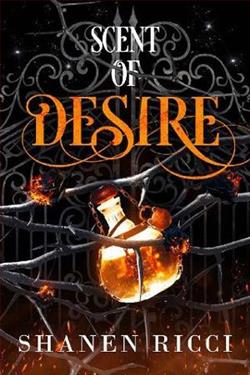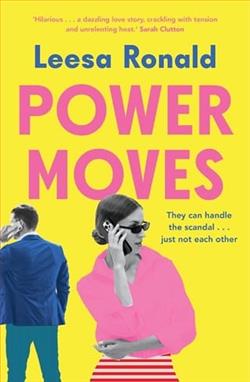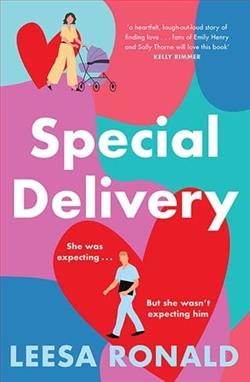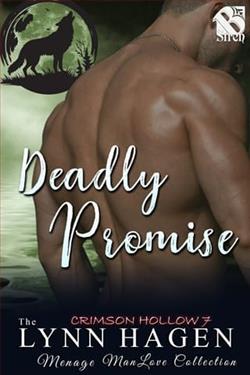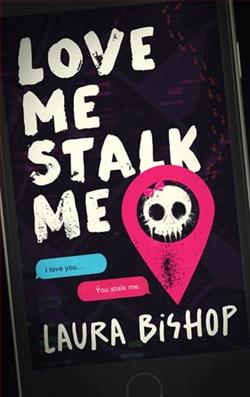Page 60 of Grounded
“Two children were removed from the scene by police with potential burns from the chemicals. Chemicals used to make meth are household items, but when combined they make a drug that is so powerful, a onetime user can become an addict.”
The camera showed the outside of the house. Beulah didn’t recognize the site, but Poplar Grove was clear on the other side of the county.
“Drug makers attempt to hide their activities by covering the windows.” A close shot of a window showed a sheet draped in front of it. “Kentuckians should report any suspicious activity to the state police. From Lincoln County, this is Buzz Adcock reporting live.”
“Thanks, Buzz. In Bourbon County today, a freak accident left a man hanging upside down in his car from a tree. The man was released without serious injury, and a crane is now attempting to dislodge the car.”
“In national news, a missing persons report out of Chicago shows …” Beulah clicked off the television and stared unseeing at the gray screen, her mind racing.
Stella Hawkins had covered the windows of the stone house. Could she be involved in something so terrible as making drugs? Beulah hated to even think such a thing of another human being, but she hadn’t fallen off the turnip truck yesterday.
With her walker, she hobbled over to the phone number list stuck between two out-of-date phone books and searched for Jeb Harris. He had given her his number a year ago and told her to call if she ever had need. What would be the harm of asking the young detective simply to drive by?
Trying not to sound overly concerned, she told him about the blankets over the windows and the electronic eye at the bridge that let Stella know who was coming in or going out. Jeb was such a nice boy, he said he would drive by this afternoon and check it out. She felt better now, knowing it was in the hands of the police.
“Who was that?” Annie asked, coming into the room dressed in shorts and sneakers.
Beulah told Annie about the news story and her conversation with the detective.
“Did he seem concerned?”
“Oh, I don’t know. It’s hard to tell with people like that who are used to dealing with so much. He said he would check on it.”
“I’m glad you called.” Annie stood on one foot and bent the other leg back behind her—stretching, she called it. “I’ll take another look around tomorrow.”
“Well, don’t go snooping around. Let the police handle it.”
“I want to see the old cemetery anyway. I haven’t been there since I’ve been home. And then, I hope it will be dry enough to pick beans,” Annie said.
“Don’t forget the groceries. I’m nearly out of butter.”
“I’m headed there now,” Annie said, gathering up her purse.
Chapter Twenty-Six
Hugging the fence line between the Wilder and Campbell farms, Annie swung her arms back and forth to the rhythm of her steps. The rain left the air pure and clean, the lines of color between the green hills and the blue sky crisp with contrast. The rock wall that provided the fence between the two farms also served as the back wall of the family cemetery, another half-mile beyond the crossover place.
When she reached the rock steps on the stone fence, she sat down to take in the beauty of the morning. For a moment, she wished for her sketch pad, but it was nice letting her arms swing freely. Annie was enjoying these walks back on the farm, so much so that she had given up her running to hike over the uneven farmland, up and down the gently rolling hills.
When she got to the wall crossing, she paused for a moment. This spot would always represent Jake to her, since it had been their meeting place for so many years. They had fallen into an easy intimacy that had evaded them in the later years of high school and into college. Different friends and interests had pulled them in separate directions. There had never been a fight. It had just happened. To be able to pick back up now, years later, was such a gift. It was as if the distance after childhood never happened; yet the relationship had grown mature, supportive.
“It’s an opportunity,” he had said during one of their early talks about her breakup and the layoff. She was starting to believe he was right. It had already afforded her this priceless chance to come home and reconnect with people who loved her and whom she loved.
She leaned back and held her face up to the sun, enjoying the warmth on her skin and the light that, even through her closed eyes, seemed to fill her soul. Stuart had been so little in her thoughts lately that she almost felt guilty. By staying next to the fence, Annie avoided the stone house, only catching glimpses of it from the wooded hillside where the fence led through a stand of locust, maple and oak trees. From the crossover place, she followed the fence up and over one hill covered with hardwood trees, then up the side of another wooded hill. At the top of that hill lay the May family cemetery.
The cemetery was marked off by a dry-laid stone fence with a rusty iron gate that was never locked. It creaked and groaned when she pushed it open. The area inside was neatly mowed and trimmed. The older stones were in the back, the newer ones in the front. In the front row, the larger granite stones stood straight and even, whereas the older, smaller stones cocked slightly to the left or right, the result of the ground settling over decades.
Her mother’s grave was the first she came to. Kneeling on the soft grass, Annie touched the cold granite and wished for the hundredth time she could feel her mother’s arms around her. Lavender drifted through her senses as if she smelled a bouquet. It was what her mother had grown in their back yard, and it had scented the stone house, sitting in bouquets in the kitchen, dried and crumbled in sachets for their clothing drawers. If she ever had a house with yard, she would grow lavender, like her mother.
Next to her mother’s grave was her grandfather’s, its grass still not even with the rest, his only two years old.
Grandpa’s silent but gentle ways included secret winks he shared with Annie when he was teasing her grandmother and extra dollars he slipped her for a movie or music, on top of the money she earned by doing extra chores. He worked long hours in the field, in the barn, in the garage, but he was home every night. Other than games of Rook with the Gibsons and church functions, he had no interests that took him away from his family and the farm.
On the other side of her mother’s stone was the small grave of her grandmother’s newborn son, Jacob. He would have been older than her mother, had he lived. She had always known about Jacob, but now she imagined the pain that must have caused her grandparents to lose an infant child, with so much promise and so many hopes left unfulfilled. And then to later lose a daughter.
In the next row were her great grandparents, Lilah and William May, and her grandmother’s brother, Ephraim May, who was killed in Italy in World War II. There was a military stone at the foot of the grave. Annie read the words aloud: “Ephraim May, PVT US Army, World War II, December 14, 1923-February 1, 1944.”
Annie looked at the cemetery with her grandmother’s eyes. Her parents were gone, of course, but she had also lost her brother at a young age, then her newborn baby, her daughter and her husband. Annie was all Beulah had left.








